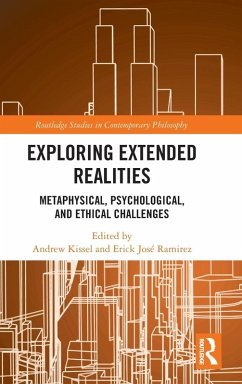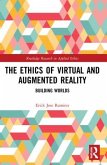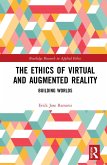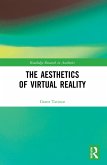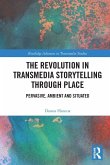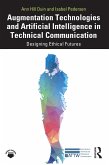This volume highlights interdisciplinary research on the ethical, metaphysical, and experimental dimensions of extended reality technologies, including virtual and augmented realities. It explores themes connected to the nature of virtual objects, the value of virtual experiences and relationships, experimental ethics, moral psychology in the metaverse, and game/simulation design.
Extended reality (XR) refers to a family of technologies aiming to augment (AR) or virtually replace (VR) human experience. The chapters in this volume represent cutting-edge research on XR experiences from a wide range of approaches including philosophy, psychology, Africana studies, and cognitive sciences. They are organized around three guiding questions. Part 1, "What is Extended Reality?", contains a series of chapters examining metaphysical questions about virtual objects, actions, and worlds. Part 2, "Is There an Ethics for Extended Realities?", includes chapters that address ethical questions that arise within XR experiences. Finally, Part 3, "What Can We Do with Extended Realities?", features chapters from a diverse group of social scientists on the potential uses of XR as an investigative and educational tool, including its strengths and pitfalls.
Exploring Extended Realities will appeal to scholars and advanced students working in philosophy of technology, metaphysics, moral psychology, applied ethics, and game studies.
Extended reality (XR) refers to a family of technologies aiming to augment (AR) or virtually replace (VR) human experience. The chapters in this volume represent cutting-edge research on XR experiences from a wide range of approaches including philosophy, psychology, Africana studies, and cognitive sciences. They are organized around three guiding questions. Part 1, "What is Extended Reality?", contains a series of chapters examining metaphysical questions about virtual objects, actions, and worlds. Part 2, "Is There an Ethics for Extended Realities?", includes chapters that address ethical questions that arise within XR experiences. Finally, Part 3, "What Can We Do with Extended Realities?", features chapters from a diverse group of social scientists on the potential uses of XR as an investigative and educational tool, including its strengths and pitfalls.
Exploring Extended Realities will appeal to scholars and advanced students working in philosophy of technology, metaphysics, moral psychology, applied ethics, and game studies.

